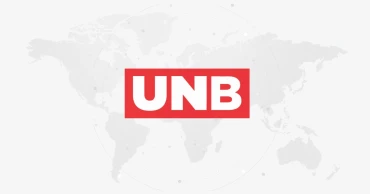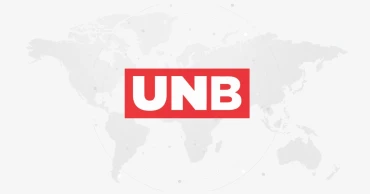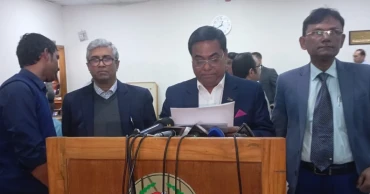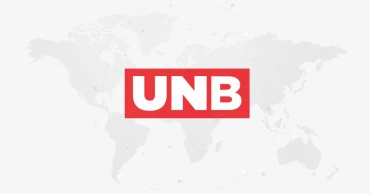February
Top 10 TV shows to watch this February
February 2026 brings a mix of returning favourites and new releases in TV entertainment, from comedies and thrillers to historical dramas and biographical series.
Among the highlights is the revival of the popular hospital sitcom Scrubs, with Zach Braff returning as JD and Donald Faison as Turk. The series picks up 16 years after the original finale, blending nostalgia with new storylines. It premieres February 25 on ABC and February 26 on Hulu in the US.
Thrillers like Vanished, starring Kaley Cuoco and Sam Claflin, follow a couple whose romantic trip turns dangerous after one mysteriously disappears. The series premieres February 1 on MGM+ in the US and February 27 on Prime Video in the UK. Another suspense-filled release, 56 Days, based on Catherine Ryan Howard’s novel, explores an erotic relationship entwined with murder and suspense, premiering February 18 on Prime Video globally.
Fans of dark crime dramas can follow Dark Winds season four, set among the Navajo Tribal Police, which continues to combine 1970s Americana, Native traditions, and suspenseful investigation. It premieres February 15 on AMC and AMC+ in the US.
Other notable series include the comic thriller How to Get to Heaven from Belfast (February 12, Netflix), the political thriller Paradise starring Sterling K. Brown (February 23, Hulu), and the historical drama The Gray House, set during the US Civil War (February 26, Prime Video). Biographical miniseries Love Story: John F Kennedy Jr and Carolyn Bessette premieres February 12 on FX and Hulu in the US, with Disney+ release in the UK on February 13.
Comedy fans can enjoy The Fall and Rise of Reggie Dinkins, starring Tracy Morgan and Daniel Radcliffe, which combines mockumentary style with odd-couple humour. It premieres February 23 on NBC and February 24 on Peacock in the US.
This February’s slate of TV shows offers something for every audience, from nostalgic revivals to high-stakes thrillers and historical storytelling, marking a diverse month in entertainment.
With inputs from BBC
22 days ago
Remittance surges to $1.03 billion in 8 days of February
Remittance inflows to Bangladesh have seen a massive spike in February ahead of election and Ramadan, expatriates sent US $1.03 billion remittance in the first 8 days of the month.
Arif Hossain Khan, spokesperson for Bangladesh Bank, told UNB on Monday, expatriates sent $1.03 billion in the first 8 days of February.
In the same period of February in 2025, expatriates sent $671 million. It means remittance growth by 53.9 percent in 8 days February this year, compared to the previous (2025).
Bangladesh so far in the current fiscal year FY2025-26, received $20.46 billion, which was $16.63 billion in FY 2024-25. It means remittance growth by 23 percent in 7 months of FY 2025-26.
Bangladesh sees remittance surge to $2.71 billion in January
22 days ago
Cold wave cold may push temperatures down to 8.0°C in February
A mild cold wave is likely to affect parts of northern, western and northwestern Bangladesh during the first half of February, according to Bangladesh Meteorological Department.
The cold wave may push temperatures down to between 8.0°C and 10.0°C in some areas, it said though no severe or prolonged cold spell is anticipated.
The outlook was shared at a meeting of the expert team on Long Range Weather Forecast held on Saturday afternoon at the Storm Warning Centre in Dhaka.
Despite the cold condition in certain areas, both day and night temperatures are forecast to rise gradually and remain above normal across the country over the month, indicating that winter is likely to ease rather than intensify.
Besides, moderate to dense fog is likely to form over river basins during the early hours while light to moderate fog may occur elsewhere in the country in the first half of the current month.
Rainfall is expected to remain below normal nationwide throughout February, the department said.
Mild cold wave sweeps parts of Bangladesh: BMD
There is also no possibility of cyclones or depressions forming over the Bay of Bengal during the month.
However, forecasters cautioned that isolated thunderstorms accompanied by hail may occur for one to two days during the second half of February, a typical pre-monsoon transition feature.
1 month ago
21st February: Is it about everyone or a particular class ?
It’s generally held that Ekushey February is the mother moment of Bangladesh history. It is celebrated nationally to produce the cultural meta imagination of state building called Shaheed Dibash. It;s as much a cultural event as it’s a memorial to the national identity surge that ultimately birthed Bangladesh as the Bengali state.
And that is also seen as a fitting rebuttal to the other nationalist surge which supposedly birthed the previous state seeking aspiration, the Muslim state of Pakistan. Mingled into all this is the collateralization of political domination through culture. Politics in most if not all spaces look for the legitimacy that will push it from the realm of political sociology to that of political theology.
In that process, Ekushey has become the Big Bang of our state making theology of history. Why and how did that happen?
A long history of political claims
The class origins of cultural movements are less studied in our world. Over time, such movements are deified and in the process placed outside scrutiny. Cultural events therefore are seen as a fundamental phenomenon that ultimately ends with claims and credit of state making. This has also been the case of Ekushey. But who did it and why is not asked.
As a sacred issue, it becomes a historical trigger beyond question and remains less examined. Ekushey signifies the primary marker that became the trigger of history which in turn produced 1971. In the end, the claim of 1952 is actually about who owns the state that 1971 gave birth to. Cultural identity is used to describe qualifications regarding the ownership of the state.
State ownership qualifications
State identity markers are multiple and sourced from all dimensions of society. They are from race, ethnicity, language, faith, territory, class clusters etc. Every person carries several of these markers so it becomes a contest of proving which marker is dominant historically hence has the right to claim ownership or dominance.
One purpose of single markers is their unifying role in a nation-state making project. It’s necessary to unite them under one meta banner of uncontested "sacred" identity markers ignoring or diminishing other markers. This has been observed in South Asian history consistently. Establishing a “nation-state” exclusive to one identity allows effective denial of diversity and rights of others even when the demand for a state began with resistance to denial.
Hence the culturalization of politics has become a very important exercise as it defines controlling political state management schemes. Thus they are not "cultural" in its commonly understood sense but act as an aid of political control of a class or group.
Cultural processes have no objective of controlling but its political users do. The process of amalgamating both cultural and political is therefore critical to achieve this. Ekushey as the ultimate national icon fulfills those objectives.
Socio economics of state making identities
Such icons have dominant and subsidiary characteristics. Their proximity to the socio-economic space is important in understanding the semiotics of the event and its purpose. Ekushey also needs to be interpreted by tracing its location, participants and ultimate iconization.
Ekushey is a dominantly a protest movement that began in the Dhaka city as a reaction to the marginalization of Bengali in state institutions and economic accessing system including civil service exams. Its leadership came from the elite educated minority. This narrative established the dominant identity defining the aspired for state. It was this class’s main issue but was projected as the meta national issue of all. Bengali identity was projected as the dominant construction of the national liberation movement and described as the prime marker. In the process the bearers of the elite “salariat” class became prime interpreters of the state objective as well.
Language loyalty meant discarding religious identity. Pakistan was considered "Islamic" and Bangladesh was considered "Bengali" hence it was projected as a either or situation. In reality, putting two identities from different baskets made little sense but it was not a cultural issue but political. So it became a vehicle for state making nationalism. That both were present in Bangladeshis were ignored for the moment in striving for state making by the middle class Ekushe based leadership.
1971 politics of state making
1971 shows that the most robust resistance to Pakistan came from the peasantry who had little to do with cultural markers like language and religion as they were dominated by agriculture not formal state institution based official employment or urban cultural activities. They had little education so language mattered even less. They, to put it mildly, were not “Bengali nationalists” They had no discernible socio-economic stake in the language issue.
Current research shows that the peasantry interprets the world differently from the middle class and produces and follows their own historical streams. What is also clear is that a state is not a monolithic interest or identity driven project but one which encapsulates many ideas and identities. If that is so, the search for the nature of the state and its actual identity must continue instead of settling for a single class’s version of history, culture and more importantly politics.
Read more: Research is vital to preserve, revitalise and develop mother languages: PM
3 years ago
Ekushey Book Fair to span entire February again after two years
The Amar Ekushey Book Fair's traditional dates got shifted for the past two editions due to Covid-19.
With virus-era norms like social distancing now discarded this year's fair is set to return to its usual start date of February 1, and barring some unforeseen pandemic-level event, last the entire month at Bangla Academy's sprawling premises, along with the adjacent Suhrawardy Udyan in the capital.
For the first time since 2020, the prime minister will inaugurate the fair in person. She will also distribute the Bangla Academy Literary Award 2022 among the recipients at the inaugural ceremony and unveil seven new books.
The ceremony will be chaired by Bangla Academy President novelist Selina Hossain. State Minister for Cultural Affairs KM Khalid, Cultural Affairs Secretary Md Abul Monsur and Bangla Academy Director General poet Nurul Huda will also be present.
Nine hundred and one units have been allocated to 601 organisations for this year's book fair, compared to 776 units to 534 organisations last year.
One hundred and sixty-five units have been allocated to 112 organisations on the Bangla Academy premises and 736 units to 489 organisations at Suhrawardy Udyan.
"Considering the suggestions and demands of the publishers and the fairgoers, we have made some changes in stall and pavilion arrangement as well as the entry and exit points. The previous cluster method is being changed and all the 489 stalls inside Suhrawardi Udyan have been set up in a way so that a visitor can see the whole fairground from any corner," Amar Ekushey Book Fair Committee Secretary KM Mujahidul Islam said at the press conference.
"The stalls of police, Ansar and fire service have been set up in the spot near the Institution of Engineers. Two confined zones have also been dedicated for food courts; there will be no unorganised, open or street food shops."
Due to publishers' requests regarding their commercial concerns, seven pavilions and 182 stalls have been moved from the Institution of Engineers area to the main fairground venue.
Also, the main entrance to the Suhrawardi Udyan area of the fair has been changed, and the temple gate of the Suhrawardi Udyan will now be the main entrance, which is located opposite the Bangla Academy. Also, there will be three more entrances and exits in the Teacher-Student Center (TSC), Doyel Chattar and the Institution of Engineers sections.
The traditional "Shishu Prohor" segment will be back this year after being shelved for two years in a row due to Covid. And the fair authority will organise this dedicated segment for child fairgoers every Friday and Saturday from 11am to 1pm. The "Shishu Chattar" has also been shifted from its previous place to the temple area this year.
Seminars will be held at the main stage of the fair venue at 4pm every day, followed by cultural events. There will be three information centres and a media centre at the Suhrawardi Udyan fairground for the fairgoers.
The fair venue was first extended to Suhrawardy Udyan in 2013 to accommodate more space besides its fixed venue at the Bangla Academy.
The entire fair zone will be closely monitored by more than 300 CCTV cameras.
The Chittaranjan Saha Memorial Award will be distributed to the best publishers. At the same time, the Munir Chowdhury Memorial Award will be conferred upon three organisations for publishing the best books in the 2022 fair.
Also, the Rokanuzzaman Khan Dadabhai Memorial Award will be given to the writer of the best children's book. The Artist Qayyum Chowdhury Memorial Award will be given to the best-designed stall at the fair.
The fairgoers can move through the four entrances and four exit points from 3pm to 9pm on regular days and 11am to 9pm on the holidays. However, they can enter the fair on International Mother Language Day at 8am, and all entrance points will be closed after 8.30pm.
The month-long book fair is arranged every year in February commemorating the sacrifices of people who laid down their lives on February 21, 1952, for establishing Bangla as the mother tongue.
The traditional Amar Ekushey Book Fair began informally in 1972 on the Bangla Academy premises; however, the academy officially took the responsibility of arranging the fair regularly, every year in 1978.
It was then named Amar Ekushey Grantha Mela and a guideline was laid out in this regard in 1984.
Read more: Longest-running Amar Ekushey Book Fair ends; Tk52.50 crore books sold
3 years ago
Presidential election within February 23 : EC secretary
The presidential election of Bangladesh will be held within February 23.
Election Commission (EC) Secretary Md. Jahangir Alam said this while talking to reporters after a meeting held at EC building on Sunday.
"The process has already started. We will contact the Parliament Secretariat and fix the date of the Chief Election Commissioner’s meeting with the Speaker," he said.
Current president Abdul Hamid cannot be elected president for another term as the country’s constitution allows a maximum of two terms for a person in the post of president.
Hamid is the only President who has been serving for two consecutive terms. His second and last tenure will expire on April 24 this year.
On Apr 24, 2013, Abdul Hamid was sworn in as the 20th President of Bangladesh.
Read More: EC starts receiving applications for settling objections to draft voter list
After the end of his first tenure, Hamid also took oath as the president on the same date in 2018 for the second term.
Lawmakers vote in the presidential election, which is supposed to be held in the House with the CEC acting as the election officer.
3 years ago
Nagad offers up to 50% discount, cashback throughout February
Mobile financial service provider Nagad is offering up to 50 percent discount and cashback on purchases from different merchant outlets throughout February.
Customers will be able to enjoy the cashback offer twice and avail of a maximum cashback of Tk100 by fulfilling the terms and conditions of the campaign.
The campaign will run until February 28. Customers can enjoy an instant cashback by making a payment with Nagad QR code on its app or by dialling *167#.
Read Nagad launches service for paying Bengal Islami Life Insurance Premium
In the e-commerce category, the buyers will be able to avail up to 14 percent or Tk1,000 cashback or discount on each transaction made by the merchants' online platforms.
Meanwhile, customers will get a 10-50 percent discount on the purchase of any product or service from 50 merchants' websites by making the payment through SSL gateway from their Nagad account. This offer is valid from February 1 to February 26, and can be availed multiple times.
However, customers will not be able to enjoy this offer payment using the Nagad app or *167#.
Read ‘Nagad Islamic’ guarantees Islamic life management
Under the fashion products category, customers will get 20 percent or a maximum of Tk500 instant cashback on purchasing products from the merchants using Nagad.
In the restaurant category, they will get instant cashback of up to 25 percent or up to Tk150 by making payment through the bill payment option of Nagad App or *167# at KFC, Pizza Hut, Secret Recipes, Barcode, Dominos, Dhaka Metro, Tokyo Express and many more.
However, for KFC and Dominos, customers must make the payment through Nagad account on SSL gateway from the merchants' websites to avail of the cashback offer. This offer will be valid till February 28.
Read Nagad launches service for paying land-related fees
4 years ago













